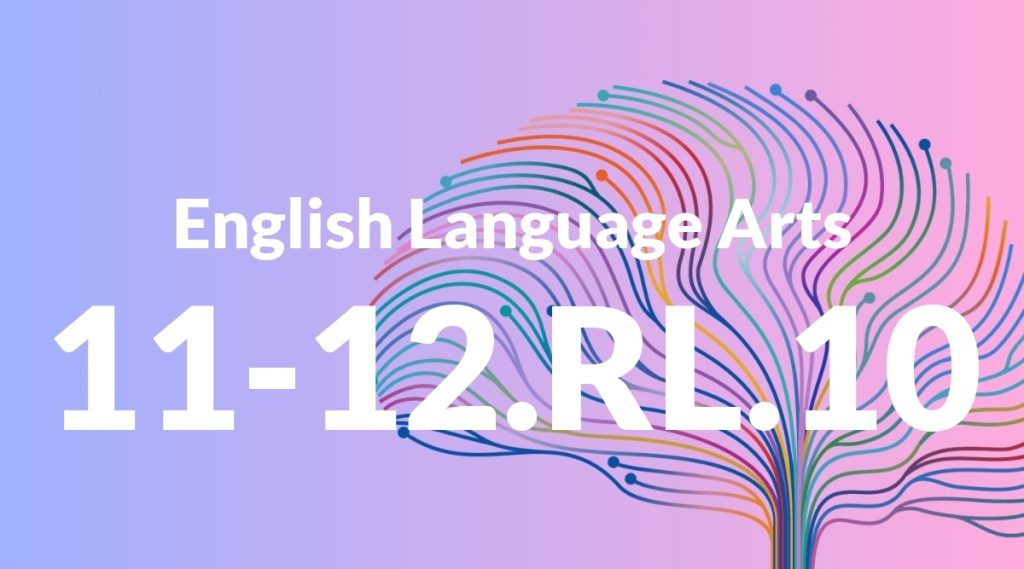Standard: 11-12.RL.10 – By the end of grade 11, read and comprehend literature, including stories, dramas, and poems, in the grades 11-CCR text complexity band proficiently, with scaffolding as needed at the high end of the range. By the end of grade 12, read and comprehend literature, including stories, dramas, and poems, at the high end of the grades 11-CCR text complexity band independently and proficiently.
Grade level: Grade 11-12
Subject: English Language Arts
Domain: Reading: Literature
Teacher Overview
This standard emphasizes the importance of reading and comprehending complex literature independently by the end of grade 12. Mastery of this standard prepares students for the analytical and critical thinking skills needed in higher education and beyond. Students should have a foundational understanding of basic literary elements and be comfortable analyzing moderately complex texts.
Students will develop the ability to critically evaluate and synthesize complex literary works, preparing them for advanced literary analysis in higher education.
Common Misconception 1
A common misconception is that comprehension is only about understanding the plot. This is incorrect because deeper comprehension involves analyzing themes, character development, and the author’s intent.
Intervention 1
Use guided questions and group discussions to help students focus on deeper literary elements beyond the plot.
Common Misconception 2
Another misconception is that all complex texts require external help to understand. This is incorrect because students can develop strategies to independently analyze and comprehend complex texts.
Intervention 2
Gradually reduce scaffolding and provide students with tools and strategies for independent analysis.
Prerequisite Knowledge
Students should have a solid understanding of basic literary elements such as theme, character, and plot, and should be able to analyze texts at a moderate complexity level.
Subsequent Knowledge
After mastering this standard, students will be able to critically evaluate and synthesize complex literary works, preparing them for college-level literature courses and advanced literary analysis.
Instructional Activities
- Group discussions on themes and character motivations
- Independent reading assignments with reflective journals
- Literary analysis essays on complex texts




